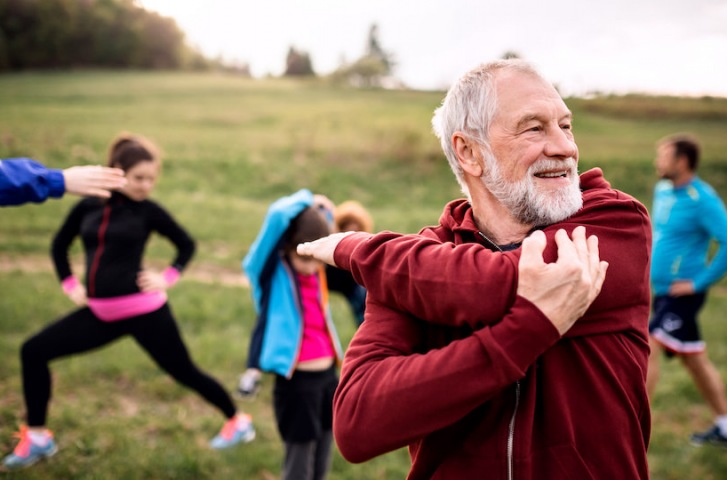How Our Lifestyle Affects Healthy Aging

Many people think of aging as a period of decline. People become less mobile, have more health complaints, and are less likely to develop new interests. However, recent research questions this way of thinking and reframes aging as a process that can either be healthy or unhealthy.
What’s the difference between those who remain healthy into old age versus those who don’t? While genetics certainly plays a part, lifestyle is considered by many specialists as the key factor as to whether a person remains mentally, physically and emotionally healthy as they get older.
Understanding the Process of Aging
You’ve probably heard the old saying “Age is just a number!”. Curiously, recent research into the process of aging reinforces the wisdom of this statement. Chronological age, the number of years that you’ve been alive, certainly has significance, but so does your biological or physiological age: How your mind and body function compared to most people in other age groups.
On a practical level, this means that a person who is 75 who is still active, physically in shape and intellectually sharp may be functioning at the level of the average 50-year-old, while a person who is 60 years old who is overweight, has chronic pain conditions and rarely engages in social or cultural pursuits, may have a functional age that is closer to 80.
While more research needs to be done in this area, it is clear that while we can’t avoid chronological aging, we do have some control over our physiological age. A healthy lifestyle with a strong emphasis on wellness can help us enjoy the second half of our lives in ways that we never thought were possible.
What is Healthy Living for Older Adults?
In many ways, healthy living for older adults is similar to healthy lifestyle recommendations for younger people. Some older adults may find that they have to modify certain activities in accordance with their doctor’s recommendations, or that they have to be more disciplined in their diets, exercise routines, and daily schedules.
Interestingly, however, there are some aging specialists who have also begun to connect the dots between healthy aging and how humans evolved over millennia. Our hunter-gatherer ancestors spent a lot of time moving during the day, ate whole foods, and lived with a very different set of stressors and social expectations than we do. Modern, industrialized societies are relatively new and our bodies (and minds!) haven’t evolved to remain healthy while sedentary and eating processed food. We have to actively seek to exercise and choose nutritious foods to achieve, and maintain, optimal wellness.
Diet for Healthy Living
Many registered dietitians agree that a healthy diet, particularly for older adults, is one that is tasty, nutritious, and varied. Recommended foods and cooking techniques can vary according to personal preferences and special dietary needs, but the science is clear that fresh fruits and vegetables, whole grains, and healthy fats are the basis of a sound eating plan
Does all this seem to be a bit overwhelming? It shouldn’t be: If you’ve been relying too much on processed or restaurant food, now might be a great time to learn some new cooking skills. In fact, taking a cooking class offers other health benefits, including intellectual stimulation and spending time socializing with others!
How Does Exercise Affect Aging?
Exercise is another key component of wellness for older adults. Getting a workout helps strengthen and stabilize the body, something that can improve coordination and reduce the chance of falls. It can also increase flexibility and improve cardiovascular health. In addition, regular exercise can burn calories, which, along with dietary changes, can keep your body weight at a healthy level.
Many older adults are worried about injuring themselves while exercising, which is why it is important to speak to your physician before beginning an exercise program. You may also want to work with an exercise instructor who specializes in working with older adults.
Active Adult Community Lifestyles
One way to enjoy healthy aging is to become a part of a community that takes wellness seriously. While not all active adult communities place a strong emphasis on wellness, do. Everleigh’s active adult communities offer facilities, amenities and programming that provides residents with opportunities to exercise, socialize, learn new things and connect with their environment. Visit us online to learn more about how Everleigh promotes a healthy lifestyle.
